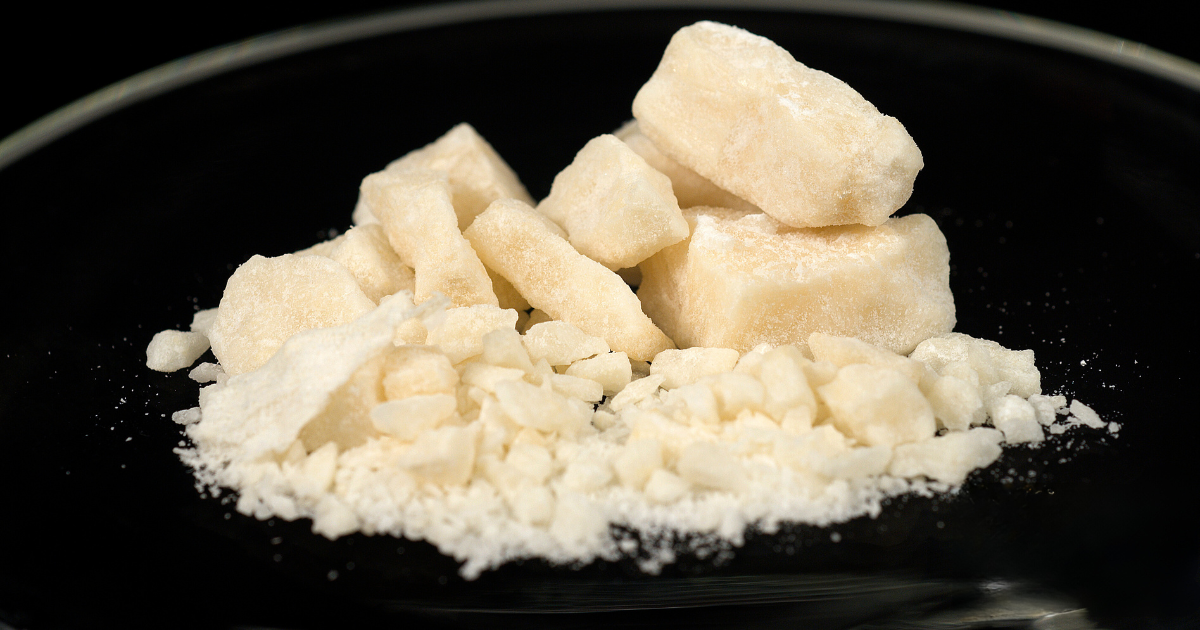Updated: August 3, 2023, at 10:09 a.m.
Cocaine typically has a brief half-life of around an hour. This means that about an hour after use, the drug’s concentration in your bloodstream falls by half. However, several factors such as the quantity used, usage frequency, personal metabolism, and overall health can cause this duration to vary.
Understanding Cocaine’s Impact on the Body
Cocaine is a potent addictive stimulant drug that heightens users’ energy and euphoria by raising the dopamine level, a pleasure-related neurotransmitter, in the brain. The drive to recreate these euphoric feelings after they fade can often lead to recurrent use and potential addiction.
Grasping the duration cocaine stays in your system is crucial given its harmful health effects. This understanding can aid individuals battling addiction, their loved ones, and healthcare professionals like Landmark Recovery seeking to help them.
The Persistence of Cocaine Metabolites
Cocaine metabolizes into compounds named “benzoylecgonine” and “ecgonine methyl ester” even though it has a relatively short half-life. These compounds can linger in the body for a more extended period. Most drug tests search for these metabolites, not cocaine itself, as these compounds remain in the body much longer than the drug.
Cocaine Test Methods
Various types of drug tests have different detection periods for cocaine.
- Urine tests: The most frequently used testing method, urine tests, can detect cocaine metabolites two to three days after the last use. But in heavy or chronic users, these metabolites can be detectable up to two weeks later.
- Blood tests: You can typically detect Cocaine and its metabolites in the blood within minutes of use and up to two days later.
- Saliva tests: These tests can pick up cocaine or its metabolites from a few minutes after use to about two days later.
- Hair tests: Interestingly, hair tests can uncover the presence of cocaine metabolites for months or even years after use, depending on the person’s hair length. But due to its cost and complexity, this method is less frequently used.
Factors Affecting the Duration of Cocaine in Your System
Several factors can determine how long cocaine and its metabolites stay in your system:
- Dosage: Your system retains higher cocaine doses longer due to the greater amount of metabolites produced.
- Frequency of use: Regular or chronic use can lead to drug accumulation in the body, extending the detection period.
- Body Mass: Substances tend to metabolize more slowly in individuals with a higher body mass index (BMI).
- Metabolic Rate: People with faster metabolisms typically can eliminate drugs from their system more quickly.
- Hydration and physical activity: Hydration can accelerate the cocaine elimination, and physical activity may boost metabolism, aiding in quicker drug elimination.
- Overall Health: A person’s general health, especially liver and kidney function, can impact the rate of cocaine metabolism and elimination.
The Importance of Choosing Treatment Over Detoxing Alone
Detoxification, or detox, is the process of removing harmful substances like cocaine from the body. While detox is a crucial first step in the recovery journey, detoxing alone can be dangerous and potentially life-threatening due to severe withdrawal symptoms. That’s why medical professionals, like those at Landmark Recovery, recommend undergoing this process under their guidance and care.
Fully Supervised Detoxification
At Landmark Recovery, we provide medically supervised detoxification as part of our residential treatment program. Our medical staff monitors patients around the clock, ensuring their safety and comfort throughout the process. If necessary, they can give medications to ease the discomfort of withdrawal symptoms and provide immediate medical assistance in case of complications, an option unavailable if you attempt detox alone.
Safety and Comfort
Cocaine withdrawal can lead to severe physical and psychological symptoms such as depression, anxiety, fatigue, and intense drug cravings. At a controlled environment like Landmark Recovery, these symptoms can be managed in a supportive and comfortable setting, reducing relapse risk and ensuring patient safety.
Personalized Treatment Approach
We understand that everyone’s journey with addiction is unique. Our medical and therapeutic staff collaborate to develop a treatment plan tailored to each patient’s specific needs and concerns. Our holistic approach covers not only detox but also behavioral therapy, group counseling, and long-term aftercare planning, giving patients the tools and support they need to maintain their sobriety.
Getting Help for Cocaine Addiction
The short-term effects and long-term consequences of cocaine pose significant risks to individuals’ health, relationships, and overall quality of life. Understanding how long cocaine stays in the body is just one aspect of battling addiction. Seeking professional help is essential to overcoming addiction and its challenges.
At Landmark Recovery, our dedicated team of professionals commits to providing comprehensive addiction treatment services tailored to each individual’s needs. We are here to help you or your loved one navigate the path to recovery.
If you or someone you know battles cocaine addiction, please contact us today. Don’t let addiction control your life or the life of a loved one any longer. Reach out to us at 888-448-0302. We are here 24/7, ready to help you take the first step towards recovery.

Choose Recovery Over Addiction
We're here 24/7 to help you get the care you need to live life on your terms, without drugs or alcohol. Talk to our recovery specialists today and learn about our integrated treatment programs.




